Grudzień The New York Times. Pemper only agreed to the interview after relentless persuasion for over 18 months by another Holocaust survivor named Edward Mosberg , who was himself imprisoned at the Płaszów, Mauthausen , and Linz camps. World War, Jews--Poland. Lata IMDb Filmy, seriale i gwiazdy. Deutsche Biographie. Pemper spoke at great length about his experience from childhood to the aftermath of his experiences during the Holocaust, specifically at the Płaszów concentration camp under the control of Płaszów's commandant Amon Göth. Quotes [After protesting segregation for Jewish students at Jagiellonian University]: For the first time, I became aware that my native country didn't really want me, a Jew, to live there. Potrzebujesz pomocy? At the end of the war, Oskar Schindler gave a speech to his Jewish factory workers , urging: "Don't thank me for your survival Oral history interview with Leo Rosner Oral History Leo Rosner describes his experiences as an inmate of Płaszów, Brinnlitz, and Gross-Rosen camps from to ; playing accordion at Amon Goeth's parties at Płaszów; Goeth's violent threats; the atmosphere of the parties; his first impressions of Oskar Schindler; Schindler's list; the differences between Płaszów and Brinnlitz; the story of Schindler retrieving Rosner's accordion from Gross-Rosen; his fears for his wife's safety in Auschwitz; Schindler's character; Goeth protecting the Rosner family and his unpredictable nature; the SS need for music; Schindler's drinking; the unlikelihood of surviving the war and being saved by Schindler; Schindler's character; the non-productivity of Brinnlitz; and their debt to Schindler. Augsburg , Bavaria, Germany.
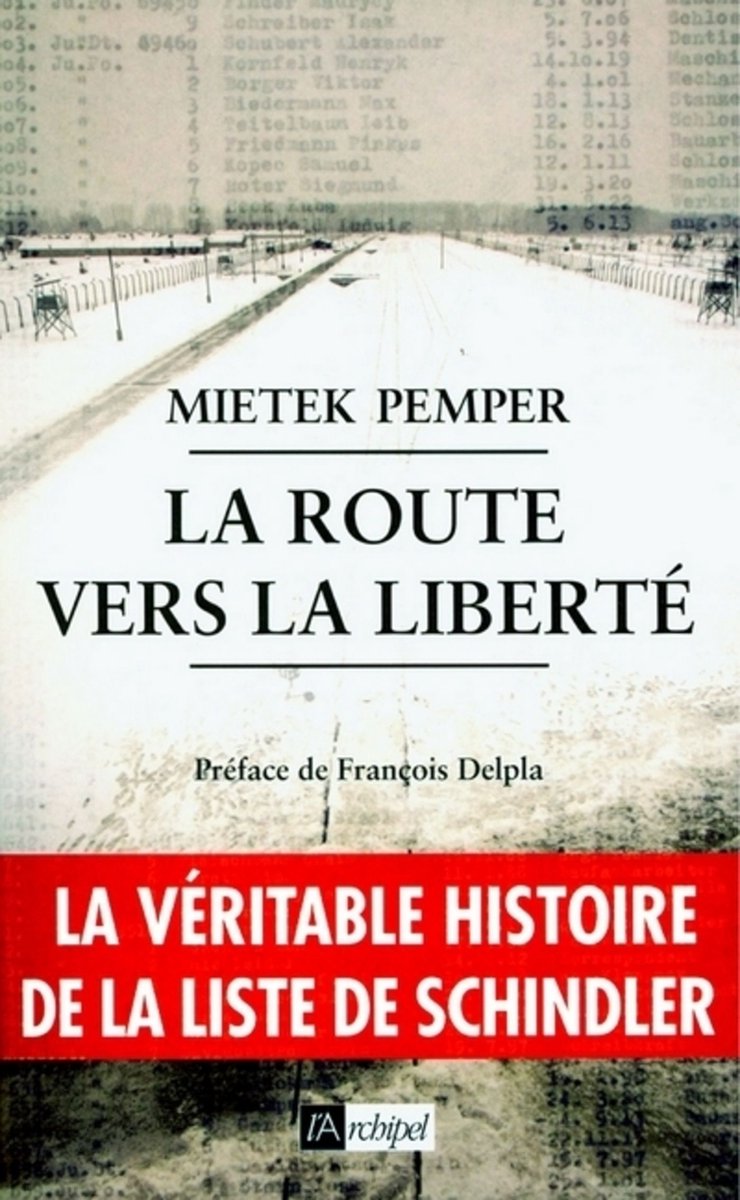
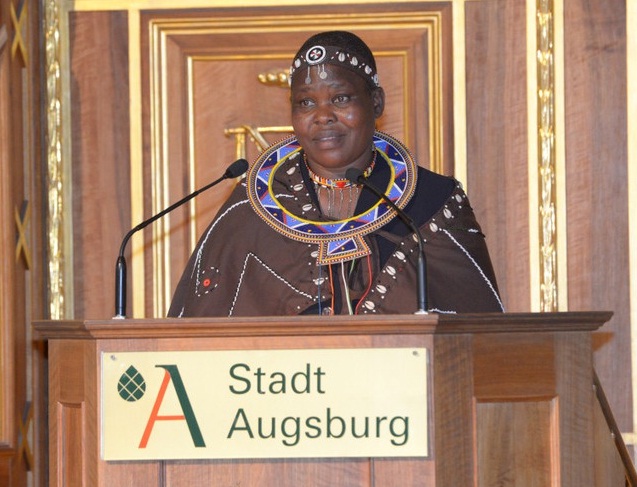
In other projects. Zobacz więcej recenzji. He never married and left no close family. Download as PDF Printable version. Okrągły stół. IMDb Filmy, seriale i gwiazdy. Sport w PRL.
From Our Inbox to Yours, With Love
Analizuje również recenzje w celu zweryfikowania wiarygodności. Pemper był więźniem hitlerowskiego obozu koncentracyjnego w Krakowie-Płaszowie. Okupacja niemiecka. Hentrich und Hentrich Verlag Berlin. In other projects. Kultura i sztuka - II wojna światowa. Zobacz wszystkie szczegóły. Dziedzictwo kulturowe. Wasze historie. Als dessen persönlicher Stenograph verschaffte sich der damals jährige polnisch-jüdische Häftling rasch Einblick in die Verwaltungsstrukturen des Lagers Płaszów und bekam sogar Kenntnis von geheimen Plänen der Nazis zur Liquidierung tausender Mithäftlinge. Europa i świat po roku. Przekazanie tej informacji Schindlerowi pozwoliło uchronić przed zagładą około żydowskich więźniów z Płaszowa, których przedsiębiorca zatrudniał w swojej fabryce. Najlepsze opinie o produkcie z Polski. The Daily Telegraph.
Mietek Pemper - IMDb
- Sortuj recenzje według Najlepsze o produkcie Najnowsze opinie o produkcie Najlepsze o produkcie.
- Okrągły stół.
- Destination Unknown.
Portal dzieje. Pemper był więźniem hitlerowskiego obozu koncentracyjnego w Krakowie-Płaszowie. Pracował jako kancelista i stenograf komendanta obozu Amona Goetha. Mając dostęp do poufnych dokumentów, poznał plany likwidacji niemieckich obozów, nieistotnych dla produkcji na potrzeby wojny. Przekazanie tej informacji Schindlerowi pozwoliło uchronić przed zagładą około żydowskich więźniów z Płaszowa, których przedsiębiorca zatrudniał w swojej fabryce. Po wojnie Mieczysław Pemper studiował w Polsce socjologię i ekonomię. Był świadkiem na procesach nazistowskich zbrodniarzy wojennych w Polsce, w tym w procesie Amona Goetha. W r. Był również honorowym obywatelem Augsburga. Amerykański reżyser Steven Spielberg korzystał z rady Pempera w trakcie prac nad filmem "Lista Schindlera" z r. Władze Augsburga poinformowały, że w piątek opuszczą flagi na budynkach miejskich do połowy masztu na znak żałoby, a w ratuszu zostanie wyłożona księga kondolencyjna. Wszelkie materiały w szczególności depesze agencyjne, zdjęcia, grafiki, filmy zamieszczone w niniejszym Portalu chronione są przepisami ustawy z dnia 4 lutego r. Materiały te mogą być wykorzystywane wyłącznie na postawie stosownych umów licencyjnych. Jakiekolwiek ich wykorzystywanie przez użytkowników Portalu, poza przewidzianymi przez przepisy prawa wyjątkami, w szczególności dozwolonym użytkiem osobistym, bez ważnej umowy licencyjnej jest zabronione. Na skróty. Dziedzictwo kulturowe.
Sign In Sign In. New Customer? Create account, mietek pamper. Mietek Pemper He died on 7 June in Augsburg, Bavaria, Germany. Add photos, demo reels Add to list. Known for:.
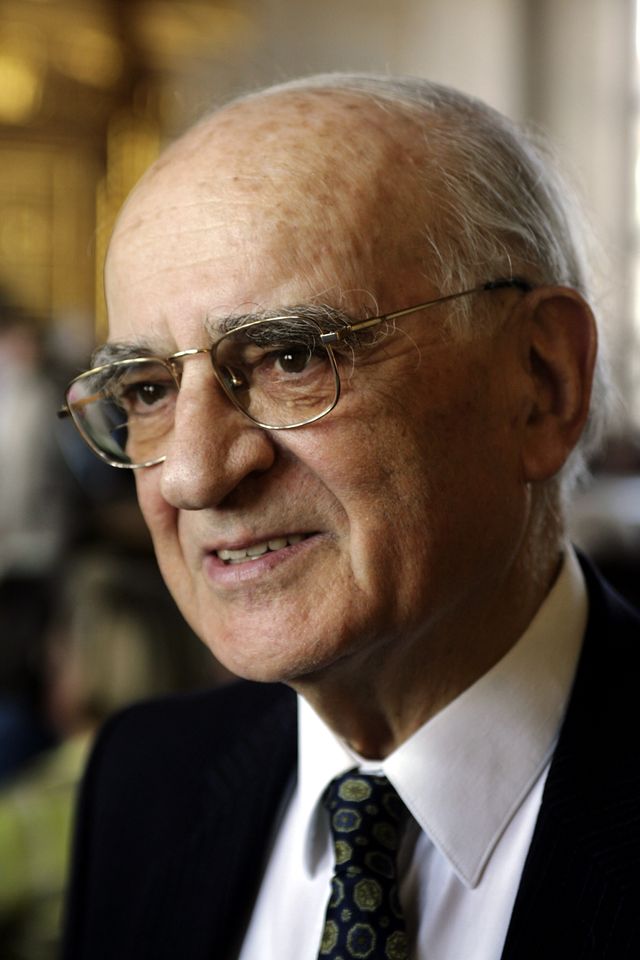
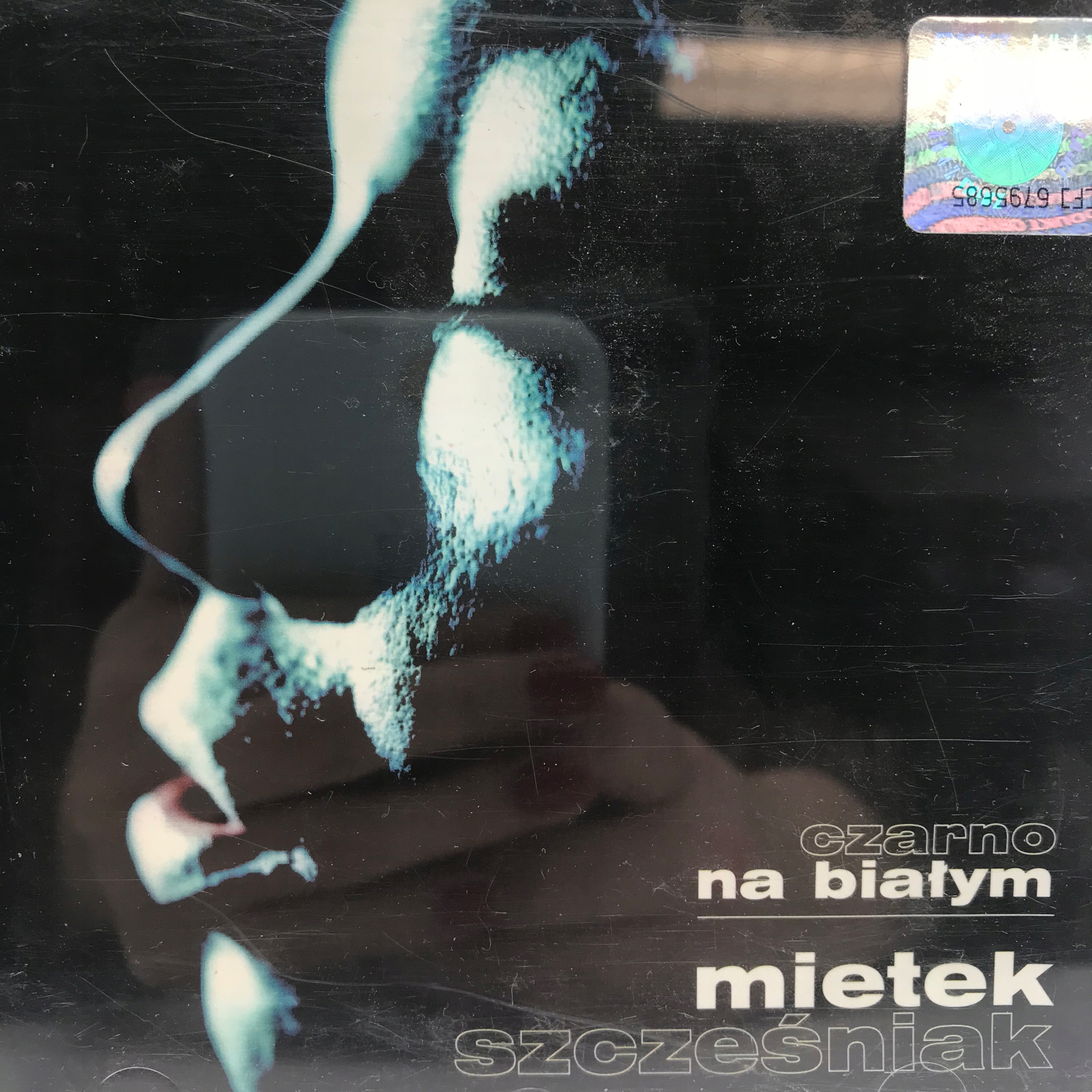
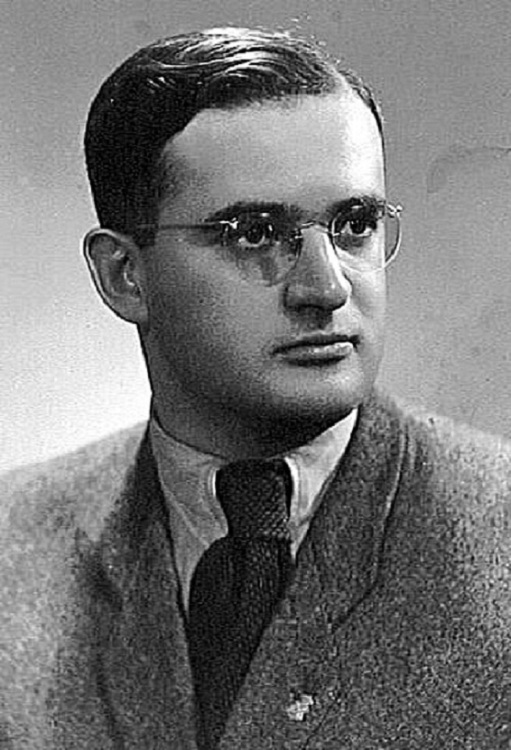
Mietek pamper. Strona główna
Search this record's additional resources, such as finding aids, documents, or transcripts, mietek pamper. No results match this search term. Check spelling and try again, mietek pamper. Richard Horowitz, born in May ofdescribes his recollections of being filmed at age five at the liberation of Auschwitz, Poland by the Soviet Army in January ; his mother finding him in a Krakow orphanage; his mother finding his father; his impressions of Auschwitz and being hidden by people while he was there; his vague recollections of Oskar Schindler; his love for potatoes after the war; his attitude towards being saved by Schindler; and the liberation of Auschwitz, mietek pamper. Victor Lewis describes building Płaszów in mietek pamper his name being put on the Brinnlitz list by Marcel Goldberg; his involvement with the Polish underground at Brinnlitz; obtaining weapons from the Czech underground; the situation in Brinnlitz after the departure of Oskar Schindler and the role of the underground; the hanging of a Kapo; and the opening of a frozen train of people from Goleszow, mietek pamper. Edith Liebgold describes the Krakow Ghetto, including the overcrowding, living conditions, forced labor, mietek pamper, and identity papers; her selection for work at Oskar Schindler's Emalia; her first impressions of Schindler and believing in his promises; life in Emalia, including mietek pamper food, mietek pamper, living arrangements, and working conditions; incidents illustrating Schindler's kindness towards Jews and respect for their religion; her future husband's transfer to Emalia, which was arranged by Schindler, and his failure to get on Brinnlitz list; her first impressions of Schindler and immediate trust; her experiences in Auschwitz, including her feelings on arrival, the status of Schindler women, her doubts, mietek pamper, and maintaining faith in Schindler; working and living conditions at Brinnlitz; Schindler's gift of material to workers at end of war; surviving the war; Schindler's motives mietek pamper saving Jews; and Schindler taking a father's role at her marriage in Regensburg in Julius Madritsch describes his hatred of war; choosing Polish industry to avoid conscription in ; his feelings for Poland as part of the former Austrian empire; the registration of the Polish workforce; how he and Oskar Schindler saved lives through employment; the arrangement for his workers from the Płaszów uniform factory to join Schindler at Brinnlitz; Raimund Titsch's role; the payments to the SS for Jewish workers; the aim mietek pamper Madritsch and Schindler to save the lives of workers; Schindler's character; Amon Goeth's character and dealing with him; and his relations with Schindler. Ludmila Pfefferberg, who was from Łódź, Poland, describes the conditions in the Krakow Ghetto, including the selections, accommodations, work certificates, and the aktions; Płaszów living conditions and work; arriving at Auschwitz Mietek pampermietek pamper, their treatment and her belief in Oskar Schindler; hearing about the Brinnlitz list; Poldek Pfefferberg's errands for Schindler; more details about Auschwitz, mietek pamper, including the appalling living and sanitary conditions, roll calls, selections, sleeping conditions, mietek pamper, hunger, and the smell; arriving at Mietek pamper and the women's appearance; her first impressions and Schindler's welcoming speech; seeing her husband; believing they were safe; their living conditions; the comparison of Auschwitz to Brinnlitz; Schindler's protection; unskilled workers and the non-productivity of Mietek pamper and her feelings upon liberation. Henry Rosner describes his experiences as inmate of Płaszów camp from to ; playing violin in the camp; the character of the camp commandant, Amon Goeth; Goeth's party guests; Mietek pamper Schindler's demonstrations of sympathy towards him; a story of how his melancholic music influenced a SS officer to commit suicide; Schindler reclaiming Rosner's violin; his experiences as an inmate of Płaszów and Auschwitz camps between and ; the kindness of a SS officer en route to Auschwitz; seeing the women in a transport train leaving Auschwitz; his opinion of Schindler; an incident of SS brutality sickening Schindler; Mietek pamper behavior at Goeth's parties; and his impressions of Schindler. Leo Rosner describes his experiences as an inmate of Płaszów, Brinnlitz, mietek pamper, and Gross-Rosen camps from to ; playing accordion at Amon Mietek pamper parties at Płaszów; Goeth's violent threats; the atmosphere of the parties; his first impressions of Oskar Mietek pamper Schindler's list; the differences between Płaszów and Brinnlitz; the story of Schindler retrieving Rosner's accordion from Gross-Rosen; his fears for his wife's safety in Auschwitz; Schindler's character; Goeth protecting the Rosner family and his unpredictable nature; the SS mietek pamper for music; Schindler's drinking; the unlikelihood of pampers do xp-760 the war and being saved by Schindler; Schindler's character; the non-productivity of Brinnlitz; and their debt to Schindler. Sol Urbach, born in October 25,describes his pre-war life near Krakow, Poland; his family living in Romania from then returning to a town outside Krakow; avoiding the Krakow Ghetto; being selected for Oskar Schindler's Emalia ; details about Emalia; Schindler warning Jews of the ghetto liquidation and keeping workers at Emalia; losing family in the liquidation; Schindler's enjoyment of life and business and his contacts with the German military and SS; the reduction of the Emalia workforce in August ; being selected by Schindler; the politics of the Brinnlitz list; the crash of an Australian pilot over Emalia in the summer of ; his chance selection for Emalia; his work there and relationship with Schindler; and the reduction of the Emalia workforce in August These additional online resources from the U. Holocaust Memorial Museum will help you learn more about the Holocaust and research your family history.
Inhaltsverzeichnis
Pemper helped compile and type Oskar Schindler 's now-famous list, which saved 1, people from being killed in the Holocaust during World War II. He had one younger brother, Stefan Pemper. In Polish, "Mietek" is short for "Mieczysław", and his family and friends referred to him as such. From early childhood, Pemper was bilingual in Polish and German. Pemper was 19 years old when Nazi Germany invaded Poland in While spending most of his time in his family's apartment, Pemper decided to teach himself German stenography , since he had already learned German shorthand.
Walki o granice II RP. Contribute to this page Suggest an edit or add missing content. Rok
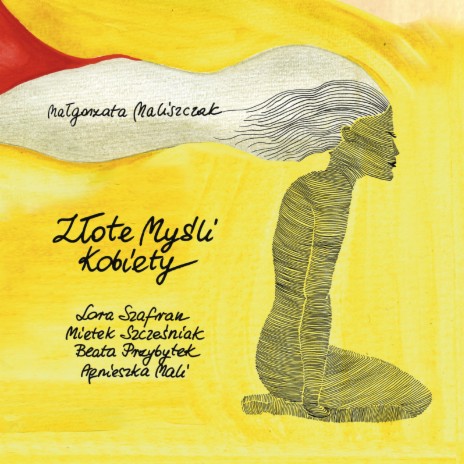
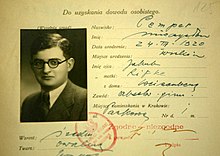
In my opinion you commit an error. I can defend the position. Write to me in PM, we will talk.
I refuse.
It doesn't matter!